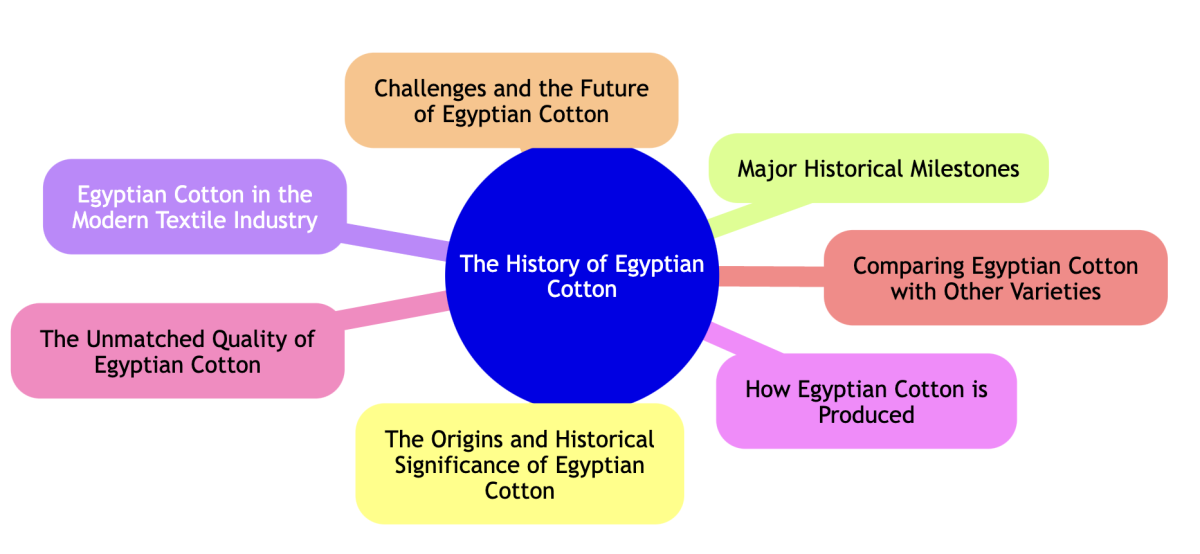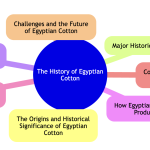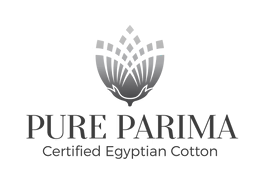Introduction - From the Nile to Your Bedroom
The history of Egyptian Cotton begins in early dynastic Egypt. Then, it was revered as a luxury for the elite. Today, it is used all around the world for its comfort, durability, and other naturally superior qualities.
Pure Parima is a leading provider of Egyptian cotton sheets, and this article is here to shed a little light on the fascinating story that is the history of Egyptian Cotton.
Key Takeaways
- Ancient Origins: Traces back to early dynastic Egypt.
- Global Luxury: Revered by empires and modern luxury markets alike.
- Quality and Properties: Known for its long, fine fibers that enhance durability and softness.
- Modern Challenges: Faces contemporary issues like authenticity and market competition.
- Cultural Impact: Continues to influence high-end textile production and luxury fashion.

The Origins and Historical Significance of Egyptian Cotton
The cultivation of cotton in Egypt dates back to around 3000 BC. The lush land surrounding the River Nile Delta is its birthplace.
The unique climatic conditions of this region fostered the growth of a plant with unusually long, fine fibers, setting the stage for a product that would come to be treasured worldwide.
As the Roman Empire expanded, Egyptian cotton gained prominence. It became a sought-after commodity among European aristocrats.
This luxury status kept gaining momentum.
Through the Middle Ages and into the Renaissance, Egyptian cotton remained a cornerstone of wealth and opulence in textiles.
Throughout the centuries, the demand for this exquisite fabric never waned. There was no stopping the progress of its significance in global trade and economics.
The Industrial Revolution further catalyzed its spread across continents, where it was woven into the very fabric of global textile history. Egyptian cotton has been a product of agricultural success and a symbol of cultural exchange and economic prosperity through the ages.
Major Historical Milestones
Egyptian cotton has crossed significant milestones to become a globally recognized symbol of quality and luxury.
Initially grown in the Nile Delta, its journey took a pivotal turn when it captured the attention of the European market during the Napoleonic era.
The establishment of mechanized spinning and weaving in England further propelled its demand.
Egyptian Cotton was a staple in the global textile industry by the 19th century.
Key Historical Milestones
- Napoleonic Influence: Introduced to European markets during the Napoleonic campaigns.
- Industrial Revolution: Integration into global trade fueled by industrial advancements.
- 20th Century Expansion: Expansion of cultivation areas within Egypt to meet global demand.
- Quality Recognition: Establishment of the Egyptian cotton trademark to guarantee purity and quality.
- Modern Challenges: Adaptations to overcome competition from synthetic fibers and other natural cotton.
Egyptian Cotton in the Modern Textile Industry
Today, Egyptian cotton holds a prestigious position in the textile industry and is still celebrated for its superior quality and resilience.
Its production is still chiefly found in the Nile Delta. The unique climatic conditions are still very important for the growth of its signature long-staple fibers.
Top Importers and Uses
- United States: Largest importer, using Egyptian cotton in luxury bedding and apparel.
- Italy: Known for high-end fashion uses.
- Japan: Incorporates the fabric in premium textiles.
- Uses in High-end Products: Predominantly found in luxury bedding, fine garments, and superior bath linens.
How Egyptian Cotton is Produced
Egyptian cotton's unmatched quality begins in the fields of the Nile Delta.
Unlike most cotton, which is machine-harvested, Egyptian cotton is predominantly hand-picked.
This traditional method prevents the compression of the cotton buds, ensuring the fibers remain intact and long. This process not only maintains the integrity of the fibers but also results in a softer, more flexible fabric that is highly sought after in the luxury textile market.
The Unmatched Quality of Egyptian Cotton
Egyptian cotton is renowned globally for its superior qualities, particularly its fiber length, strength, and softness.
These long fibers allow for the spinning of very fine yarns that are both strong and soft. The finished fabric is durable, luxurious, and less prone to pilling.
This quality results from the ideal growing conditions along the Nile River, where the rich soil and climate contribute to the growth of cotton with such unique properties.
Comparing Egyptian Cotton with Other Varieties
Egyptian cotton is often considered superior to other types of cotton due to its fiber characteristics.
Key Differences
- Fiber Length: Egyptian cotton fibers are longer than those of Pima and Upland cotton, which allows for finer, stronger, and smoother yarns.
- Softness: The smoothness of Egyptian cotton makes it softer, a crucial factor for products like luxury bed linens.
- Durability: Longer fibers contribute to stronger fabrics that wear better over time.
- Absorbency: High absorbency makes it ideal for towels and bathrobes.
- Prestige: The reputation of Egyptian cotton often makes it a preferred choice for high-end textiles.

Challenges and the Future of Egyptian Cotton
The Egyptian cotton industry faces significant challenges, including competition from synthetic fibers that offer durability and lower cost.
Issues of authenticity have also surfaced, with some products falsely labeled as Egyptian cotton.
Despite these challenges, the industry focuses on enhancing verification processes and promoting the unique benefits of authentic Egyptian cotton.
Future Trends
- Technological advancements: Improvements in production and certification processes to ensure authenticity.
- Market adaptation: Increasing demand for sustainable and traceable fabrics may favor Egyptian cotton if it adheres to these consumer preferences.
- Innovation in textiles: Development of new blends and finishes to enhance the appeal of Egyptian cotton in various applications.
Final Thoughts - Your Trusted Egyptian Cotton Bedding Providers
Egyptian cotton's history is rich, and its qualities are unmatched in the textile industry.
This fabric has been celebrated for centuries for its durability, comfort, and elegance.
Today, it remains a symbol of luxury and quality in textiles.
For those seeking authentic Egyptian cotton products, Pure Parima stands out as a trusted source committed to delivering genuine, high-quality Egyptian cotton textiles. Their commitment to quality guarantees that every customer receives products that represent the true value of Egyptian cotton.




